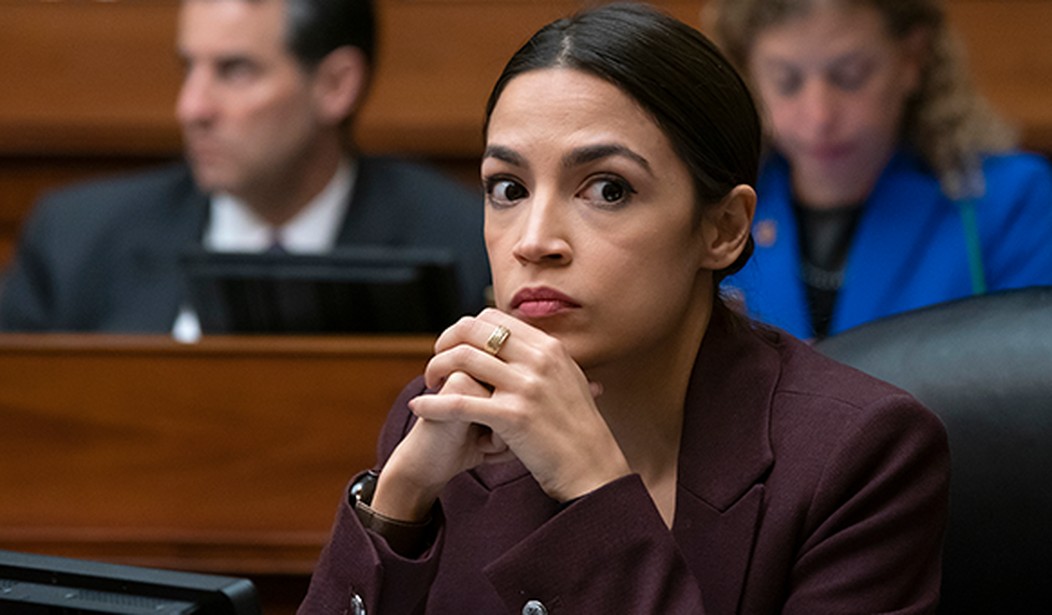As word broke Monday that New York Rep. Alexandria Ocasio-Cortez and her chief of staff, Saikat Chakrabarti, had allegedly engaged in an “off-the-books” scheme to funnel nearly $1 million from a PAC Chakrabarti controlled to two companies he also controlled, observers who remembered her viral video railing against dark money in politics were left with questions.
A month ago, Ocasio-Cortez engaged in a “lightning round” of questions to a panel before the House Oversight and Reform Committee who were there to discuss strengthening ethics rules related to the executive branch. The topic of campaign finance regulation featured prominently in New York Democrat’s line of questioning.
“I’m going to be the bad guy, which, I’m sure, half the room would agree with anyway, and I want to get away with as much bad things as possible, ideally to enrich myself and advance my interests, even if that means putting my interests ahead of the American people,” Ocasio-Cortez said during the Wednesday hearing. “I have enlisted all of as my co-conspirators, so you’re going to help me legally get away with all of this.”
She then asked a litany of questions. Can she run a campaign entirely funded by corporate political action committees? Yes. Can she use that money to make hush payments and pay people off to get elected? Yes. Once in office, can she influence and write laws that might affect the groups from which she’s taken special interest money? Yes. And can she hold stocks in companies the legislation she’s writing might boost? Yes.
Recommended
Bradley Smith, former Federal Elections Commission Chair, was among those on the panel that day. While his video clip correcting Ocasio-Cortez’s facts (“Almost everything she said during her little show there was incorrect,” Smith told Townhall) didn’t get quite the same viral attention, it was thankfully entered into the record.
Following the news reports of Chakrabarti’s money management scheme, Smith told Townhall he was aware of the irony but didn’t rule out some kind of logical — if not probable or practical — explanation.
“I guess it’s possible [Chakrabarti] wasn’t really paying attention to what he was doing when he was both controlling the PAC and sending money to the companies he also owned,” Smith said. “Maybe there’s an explanation but it’s hard to see what it is.”
When questioned Tuesday about the possible campaign finance violations — Smith says the scheme could have been a way to get around contribution and donation limits — Ocasio-Cortez insisted there was no violation.
“There is no violation,” Ocasio-Cortez exclusively told Fox News after landing Tuesday at Ronald Reagan National Airport. Asked if the complaint shows she was connected to "dark money" during the campaign, Ocasio-Cortez replied, “No, no.”
Smith says it’s possible Chakrabarti had created the two LLCs and was moving money into them from the PAC as a way to personally enrich himself, and that would make AOC’s denial true because that scenario would not be a campaign finance violation.
“But if that’s what happened, it’s still looks pretty bad for Chakrabarti,” Smith said. “I’ve never seen anything like it. There’s nothing in the law that prohibits PACs from wasting money. If they want to spend 500 dollars on a fortune teller to tell them who will win the next election, they can do that. But if a PAC is giving large sums of money to an LLC, and the owner of that LLC is also managing the campaign, that’s probably coordinated. And there are reporting and contribution limits that apply. I honestly don’t know why he set it up the way he did, but it’s hard to believe looking at it that there aren’t some violations.”
As Vox reported back in February, Pew Research Center Polling “shows that most Americans believe there should be limits on the amount of money individuals and groups can spend on campaigns and think that big donors have more influence than others. But campaign finance laws are complicated, so many people aren’t aware of what is and isn’t allowed.”
This last point is what Smith says may have played a role in why Chakrabarti funneled money from the PAC to companies he also controlled.
“These critics of campaign finance law seem to believe that it is an unregulated industry, “ Smith said. They believe there are no rules and you can do whatever you want. They really believe that. But campaign finance is a highly regulated industry…I think maybe they got a little too clever by half and possibly thought they could get away with it. I don’t rule out an innocent explanation, but it looks like it’s probably illegal.”

























Join the conversation as a VIP Member